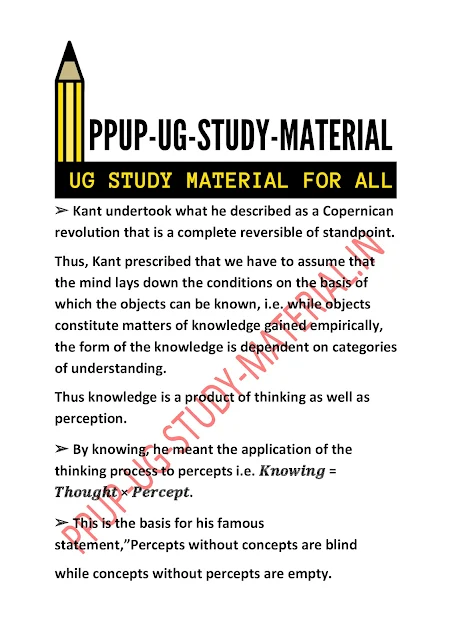Write note on the Theories regarding sources of Knowledge - Rational Empiricism, Criticism - PPUP part 2 philosophy subsidiary ug study material pdf Download
[ Write note on the Theories regarding sources of Knowledge - Rational Empiricism, Criticism - PPUP part 2 philosophy subsidiary ug study material pdf Download ]
In this BlogPost we'll cover These Topics - PPUP part 2 philosophy subsidiary ug study material download, PPUP part 2 philosophy subsidiary ug study material free, PPUP part 2 philosophy subsidiary ug study material, PPUP part 2 philosophy subsidiary ug study material online, PPUP part 2 philosophy subsidiary ug study material pdf, PPUP part 2 philosophy subsidiary ug study material quora, patliputra university guess paper 2024 pdf, patliputra university study material, Jaspal guess paper patliputra university 2024 pdf, Jaspal guess paper 2024 patliputra university part 2, Rationalism vs empiricism, Sources of knowledge in epistemology, Sources of knowledge in philosophy PDF, Rationalism and empiricism PDF, What are the five sources of knowledge in philosophy, 7 sources of knowledge, What are the sources of knowledge in Philosophy, Rationalism vs empiricism which is better, Rationalism and empiricism PDF, Sources of knowledge in epistemology, Sources of knowledge in philosophy PDF, Rationalism vs empiricism, 7 sources of knowledge, What are the five sources of knowledge in philosophy, Rationalism philosophy PDF notes, What are the sources of knowledge in Philosophy
Introduction to Write note on the Theories regarding sources of Knowledge - Rational Empiricism, Criticism - PPUP part 2 philosophy subsidiary ug study material pdf Download
Conclusion for Write note on the Theories regarding sources of Knowledge - Rational Empiricism, Criticism
I hope You got what you were looking for ..reading this post Write note on the Theories regarding sources of Knowledge - Rational Empiricism, Criticism - PPUP part 2 philosophy subsidiary ug study material pdf Download ... and if you got any query ..you can comment below so we can provide you further assistance.










No comments